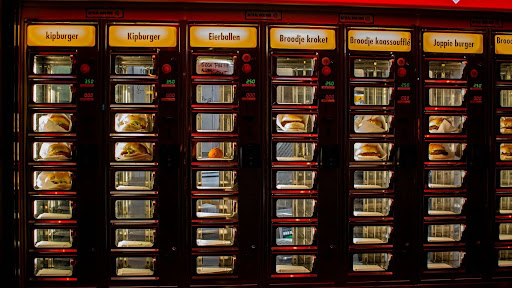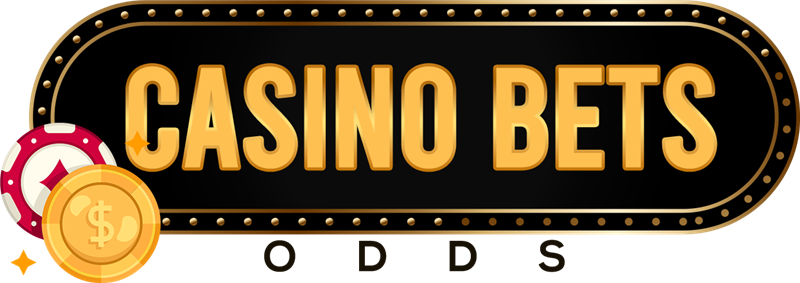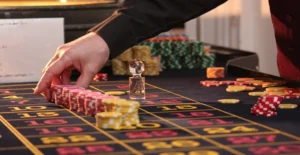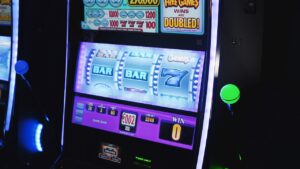When you’re at a slot machine, you’ll often see an option to change the denomination. This isn’t just a cosmetic tweak; it actually changes how much your credits are worth and can even alter the game itself. Essentially, adjusting the denomination is like choosing a different price point for each spin.
What Does Changing the Denomination on a Slot Machine Do?
Here’s a breakdown of what happens:
- Value of Credits: The most direct effect is on how much each credit you wager is worth. If you’re playing a penny slot, each credit is worth $0.01. Switch to a nickel slot, and each credit is suddenly worth $0.05. This means a bet of, say, 50 credits will cost you $0.50 on a penny machine but $2.50 on a nickel machine.
- Bet Size and Game Structure: Sometimes, changing the denomination can also change the game’s structure. For instance, a machine might offer more paylines at a lower denomination and fewer paylines at a higher one. This can affect your chances of winning on any given spin and might even change the minimum bet required to play.
- Payout Percentages: Casinos often set different Return to Player (RTP) percentages for different denominations. Generally, higher denominations tend to have slightly better RTPs. This means that, over the long run, a machine might theoretically pay back a larger percentage of wagers at a higher denomination compared to a lower one.
It’s important to remember that while higher denominations might offer better theoretical returns, they also require a larger bankroll to play. The key is to find a denomination that fits your budget and playing style, allowing for enjoyable playtime without overspending.
Understanding these changes can help you make more informed decisions about which denomination to select for your gaming session. For example, if you’re looking for extended playtime on a budget, you might opt for a lower denomination, like the 10-cent games on Chumba Casino, which allows for more spins with a smaller amount of money.
Understanding Slot Denominations: What They Mean
When you walk up to a slot machine, you’ll often see options to select the denomination. So, what exactly does that mean? Simply put, the denomination is the value assigned to each credit you use to play the game. Think of it as the price tag for each unit of play. For example, on a ‘penny slot,’ each credit is worth $0.01. If you switch to a ‘quarter slot,’ each credit is now worth $0.25. This choice directly impacts how much your bet costs and, consequently, how much you can potentially win or lose with each spin.
Many modern slot machines are multi-denominational, meaning you can choose your preferred value. This flexibility is a key feature for players. You might see options like 1 cent, 5 cents, 10 cents, or even $1 per credit. The machine will display your balance in credits, but you can usually tap that number to see the equivalent cash value, making it easy to track your money.
Here’s a quick look at how denominations translate to credit value:
- Penny Slot: 1 credit = $0.01
- Nickel Slot: 1 credit = $0.05
- Quarter Slot: 1 credit = $0.25
- Dollar Slot: 1 credit = $1.00
The denomination you select is a primary factor in determining the total wager for each spin. A bet of 100 credits on a penny slot costs $1.00, but the same 100 credits on a dollar slot costs $100.00. It’s important to be aware of this difference before you start playing.
It’s worth noting that while the denomination sets the value of a credit, the number of credits you bet per spin can also vary. This combination of denomination and credits bet determines your total bet amount. For instance, betting 50 credits on a 5-cent denomination machine means your total bet is $2.50 (50 credits * $0.05/credit). Understanding this relationship is key to managing your bankroll effectively when playing various gambling and casino games.
Some players believe that higher denomination slots generally offer better payback percentages. While this can be true, it’s not a universal rule, and the specific game and casino policies play a significant role. The main takeaway is that the denomination is your first step in setting the stakes for your slot machine experience.
How Changing the Denomination Affects the Value of Credits

When you change the denomination on a slot machine, the most direct effect is on how much each credit you wager is actually worth in real money. Think of the denomination as the price tag for each credit. If you’re playing on a penny slot, each credit you bet is worth one cent. Switch that to a nickel slot, and suddenly each credit is worth five cents. This might seem straightforward, but it significantly alters your total bet size.
For example, let’s say a game allows you to bet 50 credits per spin. On a penny denomination ($0.01), that’s a total bet of $0.50 per spin. If you switch to a quarter denomination ($0.25), that same 50-credit bet jumps to $12.50 per spin. The number of credits bet stays the same, but their monetary value changes dramatically.
Here’s a quick look at how that plays out:
- Penny Denomination ($0.01): A 100-credit bet costs $1.00.
- Nickel Denomination ($0.05): A 100-credit bet costs $5.00.
- Quarter Denomination ($0.25): A 100-credit bet costs $25.00.
- Dollar Denomination ($1.00): A 100-credit bet costs $100.00.
This shift in credit value is why players often find that higher denomination machines require a larger bankroll. It’s not just about betting more credits; it’s about each credit being worth more. Understanding this relationship is key to managing your budget and choosing the right game for your play style. For instance, the Hot Shot Progressive Slot Machine allows players to adjust their coin value, directly impacting the cost of each spin.
The core function of changing the denomination is to reassign a monetary value to each unit of play. This directly scales the cost of your bets and, consequently, the potential payouts you can achieve. It’s the primary mechanism by which players can tailor the game’s financial intensity to their preferences and bankroll.
This change in credit value also influences how quickly your balance depletes. A higher denomination means your credits disappear faster with each spin, so it’s important to be mindful of your total wager and how many spins you can afford.
Impacts on Bet Size, Paylines & Game Structure by changing the denomination on a slot machine do
When you change the denomination on a slot machine, it’s not just about how much your credits are worth; it can actually alter the game’s setup. Think of it like switching from playing with pennies to nickels – the core game might look the same, but the underlying mechanics can shift.
The most direct effect is on your bet size. If you’re playing a machine where you bet, say, 50 credits per spin, moving from a $0.01 denomination to a $0.05 denomination means your bet jumps from $0.50 to $2.50 per spin. That’s a significant increase in your wager, even though the number of credits bet remained the same.
Beyond just the cost of a spin, changing denominations can sometimes change the number of active paylines. Some games are designed this way. For instance, a machine might offer 50 paylines at the $0.01 denomination but reduce that to 25 paylines when you switch to the $0.05 denomination. This isn’t just a random change; it’s often done to keep the minimum bet at a more accessible level for the higher denomination or to manage the increased volatility that comes with larger bets. When paylines change, it effectively makes it a slightly different game because you have fewer ways to form winning combinations on any given spin.
Here’s a quick look at how this can play out:
- Bet Amount: A 50-credit bet at $0.01 denomination costs $0.50. The same 50-credit bet at $0.10 denomination costs $5.00.
- Paylines: Some games might offer 100 paylines at $0.01 but only 50 paylines at $0.25.
- Game Features: Certain bonus features or progressive jackpot triggers might only be accessible or more frequent at higher denominations.
It’s important to remember that while the paytable might look the same on the screen, the actual value of those wins changes dramatically with the denomination. A 100-credit win on a penny slot is $1.00, but on a dollar slot, it’s $100.00.
This adjustment in bet size and game structure means you’re not just playing the same game with different money values; you’re often interacting with a slightly modified version of the slot machine itself.
Effects on Payouts, RTP & Casino Edge by Changing the Denomination on a Slot Machine Do
When you adjust the denomination on a slot machine, it can definitely shake things up regarding payouts and the overall return to player (RTP). Think of it like this: the casino sets different RTP percentages for different denominations. It’s not a hard and fast rule that every machine does this, but many do. Often, you’ll find that playing at a higher denomination comes with a slightly better RTP. This means, over a long stretch of play, you might theoretically get a bit more back from the machine when you’re betting more per credit.
However, this doesn’t mean you’re guaranteed to win more in a single session. The casino’s edge, or house edge, is also factored into these percentages. While a higher denomination might offer a better RTP, it also means your money goes faster. A higher bet per spin, even with a better RTP, can lead to quicker depletion of your bankroll if luck isn’t on your side.
Here’s a quick look at how it can play out:
- Higher Denominations: Often associated with higher RTP percentages. This can mean a better long-term return, but each spin costs more.
- Lower Denominations: May have slightly lower RTP percentages. While individual wins might be smaller, your money can potentially last longer, allowing for more spins.
- Casino Edge: The house edge is built into the game’s design and is influenced by the RTP. While changing denominations might shift the RTP slightly, the casino always maintains an advantage.
It’s important to remember that the paytable itself usually stays the same regardless of the denomination you choose. What changes is the value of each credit you wager. So, a winning combination that pays 100 credits will be worth more in dollars if you’re playing at a 25-cent denomination compared to a 5-cent denomination.
While the theoretical RTP might be more favorable at higher denominations, the actual outcome of any given spin is random. The most significant impact of changing denominations is on your bet size and how quickly your bankroll is spent. Always play within your budget and choose a denomination that aligns with your comfort level and desired playtime.
Volatility, Prize Frequency & Progressive Jackpots by Changing the Denomination on a Slot Machine Do
When you switch up the denomination on a slot machine, it can really shake things up regarding how often you win and how big those wins might be. Think of it like this: playing at a lower denomination, say a penny slot, often means you’re going to see more frequent, smaller wins. It’s like getting a lot of little treats. On the flip side, moving to a higher denomination, like a quarter or a dollar slot, usually means the wins will be less common, but when they do hit, they’re generally much larger. This is where the concept of volatility comes into play. Higher denominations tend to be more volatile, meaning there’s a wider swing between wins and losses.
This shift in volatility directly impacts prize frequency. You might notice that when you’re playing at a higher denomination, you could go through more spins without seeing a significant win, but then suddenly hit a substantial payout. Conversely, lower denominations can feel more forgiving, offering a steadier stream of smaller wins that keep your balance from dropping too quickly. It’s a trade-off between the thrill of a big score and the comfort of consistent, albeit smaller, returns.
- Lower Denominations: Generally associated with lower volatility, leading to more frequent, smaller wins. This can extend playtime for players with smaller budgets.
- Higher Denominations: Typically linked to higher volatility, resulting in less frequent but larger payouts. This appeals to players seeking bigger jackpots.
- Progressive Jackpots: Often, the eligibility for progressive jackpots, especially the larger ones, is tied to higher bet amounts or specific denominations. Changing your denomination might affect your ability to qualify for these massive prizes.
It’s important to remember that while higher denominations might offer better overall payback percentages in some cases, this doesn’t guarantee you’ll win more in any single session. The game’s inherent randomness still plays the biggest role. Always check the game’s information screen to understand how denomination affects progressive jackpot eligibility and potential payouts.
For those chasing those life-changing sums, the impact on progressive jackpots is particularly noteworthy. Many progressive slot machines, especially those with massive, multi-casino jackpots, have specific requirements for jackpot eligibility. Often, playing at the maximum bet or a specific higher denomination is necessary to be in contention for the top prize. If you’re playing a machine where changing the denomination also changes the bet size, you need to be aware of whether you’re still meeting the criteria for the progressive. For instance, some progressive penny slots in Vegas might require a higher bet per line than you’re making at a lower denomination, even if the total bet amount seems similar. This means a big jackpot could be just out of reach simply because you adjusted the denomination without checking the progressive rules.
Pros & Cons: When It Helps and When It Doesn’t
Changing the denomination on a slot machine can be a smart move, but it’s not always the best idea. It really depends on what you’re trying to get out of your play.
The main benefit is flexibility, allowing you to tailor the game to your budget and goals. If you’re on a tighter budget or just want to play for a longer time, dropping the denomination to pennies or nickels makes sense. This means each spin costs less, so your money can stretch further. You might see smaller wins more often, which can keep the game exciting without draining your bankroll too quickly.
On the flip side, if you’re aiming for those big, life-changing jackpots, a higher denomination might be your ticket. Some players believe, and sometimes it’s true, that machines set to higher denominations can offer better long-term payback percentages. This means, over a lot of spins, the machine might theoretically return a slightly larger portion of the money wagered. However, this comes with a significant caveat: each spin costs a lot more. A few bad spins at a dollar denomination can wipe out your budget much faster than at a penny level.
Here’s a quick look at the trade-offs:
- Pros:
- Allows for longer play sessions on a limited budget.
- Potentially more frequent, smaller wins can keep engagement high.
- It can be used to manage risk and avoid rapid bankroll depletion.
- Cons:
- Higher denominations may offer better RTP, but cost significantly more per spin.
- Lower denominations can lead to a less thrilling experience for those chasing big wins.
- The potential for better payback at higher denominations isn’t guaranteed and can vary greatly by casino and game.
It’s a common misconception that simply switching to a higher denomination automatically means you’ll win more. While some machines might be programmed with slightly better return-to-player (RTP) rates for higher bets, this isn’t a universal rule. The most important factor is often the total amount you’re betting per spin, regardless of the denomination itself. If you reduce the number of paylines you play to compensate for a higher denomination, you might end up with a similar total bet and hit frequency as someone playing a lower denomination on more lines.
Ultimately, the ‘best’ denomination is the one that aligns with your personal bankroll management strategy and your entertainment goals. There’s no single answer that fits everyone.
Tips & Best Practices: Smart Ways to Change Denominations
When you’re looking to switch up the denomination on a slot machine, it’s not just about picking a random number. There are some smart ways to approach this that can really make a difference in your play. Think of it like adjusting the settings on a game to fit your mood or your wallet for that particular session.
First off, always know your budget. This sounds simple, but it’s the most important thing. If you’re on a tight budget, sticking to lower denominations makes sense. You get more spins for your money, which means more chances to hit something, even if it’s small. On the flip side, if you’ve got a bit more to play with and are aiming for bigger wins, a higher denomination might be the way to go. Just remember, those bigger bets can drain your bankroll faster.
Here’s a quick breakdown of what to consider:
- Budget Alignment: Match the denomination to how much you’re comfortable spending per spin. A $100 bankroll can last a lot longer on penny slots than on dollar slots.
- Game Mechanics: Some games change their features, like the number of active paylines, when you switch denominations. Always check the game’s information screen to see if anything significant has changed.
- Bonus Features: Certain bonus rounds or progressive jackpot triggers might require a minimum bet or a specific denomination to be eligible. Make sure you’re not missing out on potential big wins because of your denomination choice.
- Personal Play Style: Do you prefer long, steady play, or are you chasing a large jackpot? Your preference should guide your denomination selection.
It’s also a good idea to check the machine’s information screen before you start playing at a new denomination. This screen usually details the bet per line, the number of lines active, and any special rules that apply to different denominations. Understanding these details upfront can prevent surprises and help you make the most of your playtime.
Sometimes, a machine might offer a slightly better Return to Player (RTP) percentage at higher denominations. While this isn’t always the case, it’s worth looking into if you’re a player who pays attention to these numbers. However, don’t let a slightly higher RTP tempt you into betting more than you’re comfortable with; bankroll management is always key.
Want to learn clever ways to switch up your betting amounts? We’ve got some great ideas for you. Discover how to make smart changes to your bets and boost your game. Visit our website today for more tips and tricks!
Frequently Asked Questions
What exactly is a slot machine denomination?
A slot machine’s denomination is simply the value of each credit you use to play. For example, on a ‘penny’ slot, each credit is worth one cent. If you switch to a ‘quarter’ slot, each credit becomes worth twenty-five cents. This value directly affects how much each spin costs and how much you can win.
How does changing the denomination change my bet amount?
When you change the denomination, you change the worth of each credit. If you bet the same number of credits, your total wager will be different. For instance, betting 100 credits on a penny slot costs $1.00 (100 credits x $0.01), but betting 100 credits on a quarter slot costs $25.00 (100 credits x $0.25).
Can changing the denomination alter the game itself?
Yes, sometimes changing the denomination can change how the game plays. A common change is the number of active paylines. Some games might offer fewer paylines at higher denominations to keep the minimum bet manageable and to balance the increased wager amount.
Does a higher denomination mean better payouts?
Generally, slot machines with higher denominations tend to have a better Return to Player (RTP) percentage over the long run. This means they might pay back a larger portion of the money wagered. However, remember that each spin also costs more money.
Does changing the denomination affect how often I win?
Changing the denomination can sometimes affect the game’s volatility, which relates to how often you win and how big those wins are. Lower denominations might offer smaller wins more frequently, while higher denominations could lead to larger, but less frequent, wins.
Should I always play at the highest denomination?
Not necessarily. The best denomination for you depends on your budget and how long you want to play. If you have a smaller budget, sticking to lower denominations allows for more spins. If you’re aiming for bigger potential wins and can afford it, higher denominations might be considered, but always play responsibly.
Daniel Chase is a seasoned casino analyst and iGaming writer with over 10 years of experience in the online gambling industry. He specializes in game strategy, casino odds, and player-focused reviews. Daniel is passionate about helping players make smarter decisions through transparency, real data, and honest insight.











